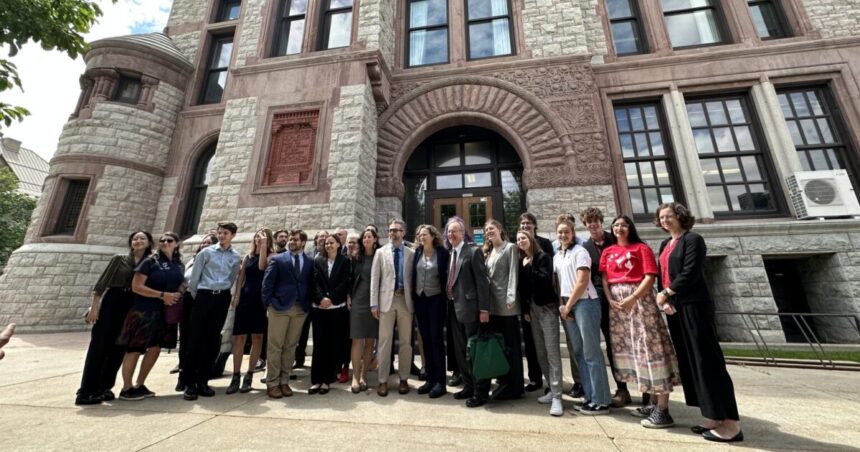If the Montana Supreme Court upholds a lower court’s decision in the youth climate case, could it compel action from the legislature?
In Held v. Montana, is the primary objective of the 16 youth plaintiffs to halt mining and oil drilling?
Moreover, what are the chances that the state Supreme Court will reverse the district court judge’s ruling?
In a landmark ruling last August, Lewis and Clark District Court Judge Kathy Seeley declared a law that prohibits the state from considering greenhouse gas emissions in permitting decisions unconstitutional. An appeal is currently pending.
During a City Club Missoula event, a law professor and environmental journalist engaged with 126 attendees to discuss the lawsuit and its potential implications at both the state Supreme Court and local levels, as reported by Daily Montanan.
City Club Missoula aims to inspire and educate citizens on significant community matters through regular civic forums.
Michelle Bryan, a professor from the University of Montana law school’s Natural Resources and Environmental Law Program, highlighted the provisions in other countries that safeguard a clean environment, contrasting with the limited state protections in the U.S., including Montana.
She emphasized the complexities of interpreting the Montana Constitution in the context of climate change and the intricate balance required to reconcile competing interests in land development and conservation.
Notably, the Held case underscored the obligation of the state to uphold environmental standards for current and future generations, a principle debated by the 16 youth plaintiffs in the lawsuit.
Amanda Eggert, a reporter for the Montana Free Press, pointed out the importance of the judge’s recognition that the atmosphere falls within the purview of environmental protection, a pivotal aspect of the ruling.
While Montana’s emissions may seem relatively small compared to global figures, the case underscores the need for comprehensive action to mitigate climate impact.
Looking ahead, Bryan anticipates the Montana Supreme Court will acknowledge climate considerations within the environmental rights framework and emphasizes the potential for pressing the legislative branch towards meaningful action through continued legal challenges.
The ongoing dialogue between branches of government and stakeholders reflects the complex interplay between legal mandates and policy implementation in addressing climate change.
Ultimately, the Held case signals a critical juncture in Montana’s approach to environmental policy and its alignment with constitutional imperatives.
Daily Montanan is part of States Newsroom, a nonprofit news network supported by grants and donors as a 501c(3) public charity. Daily Montanan maintains editorial independence. Contact Editor Darrell Ehrlick for questions: info@dailymontanan.com.





